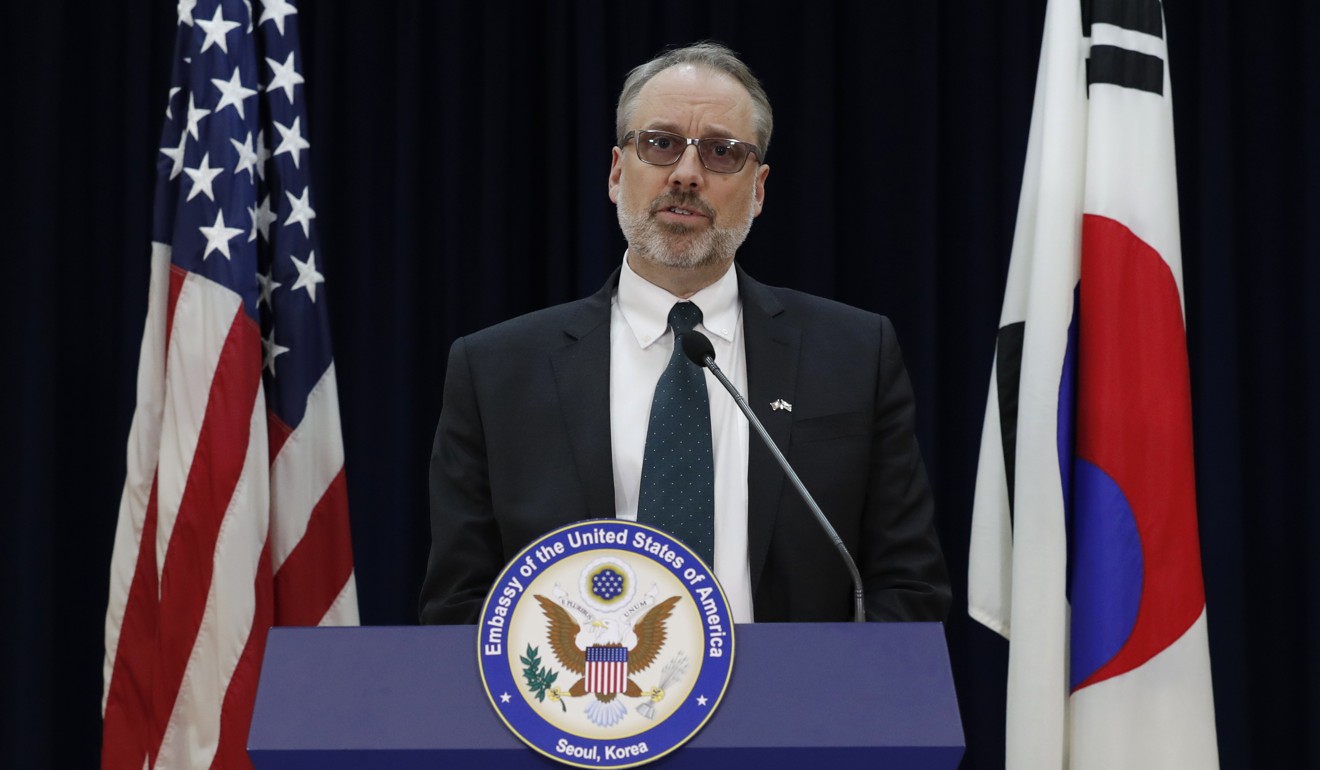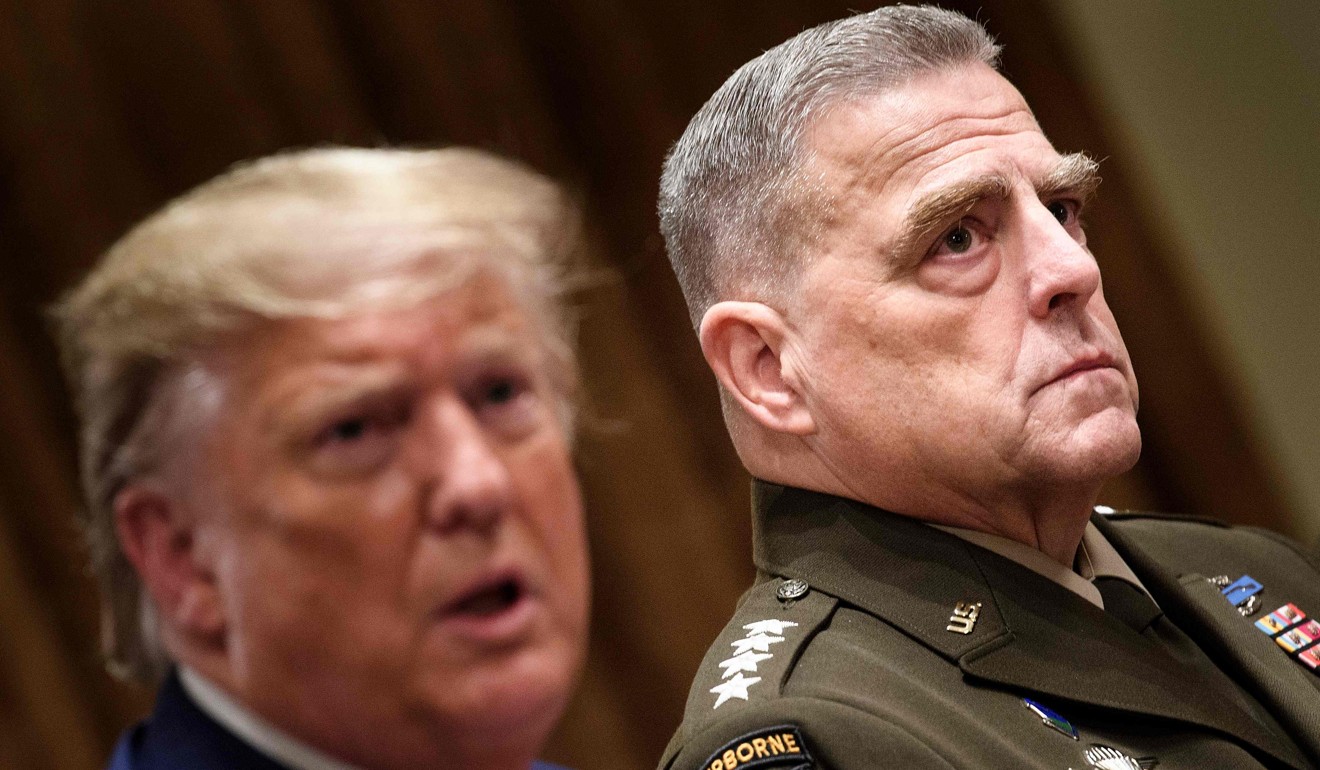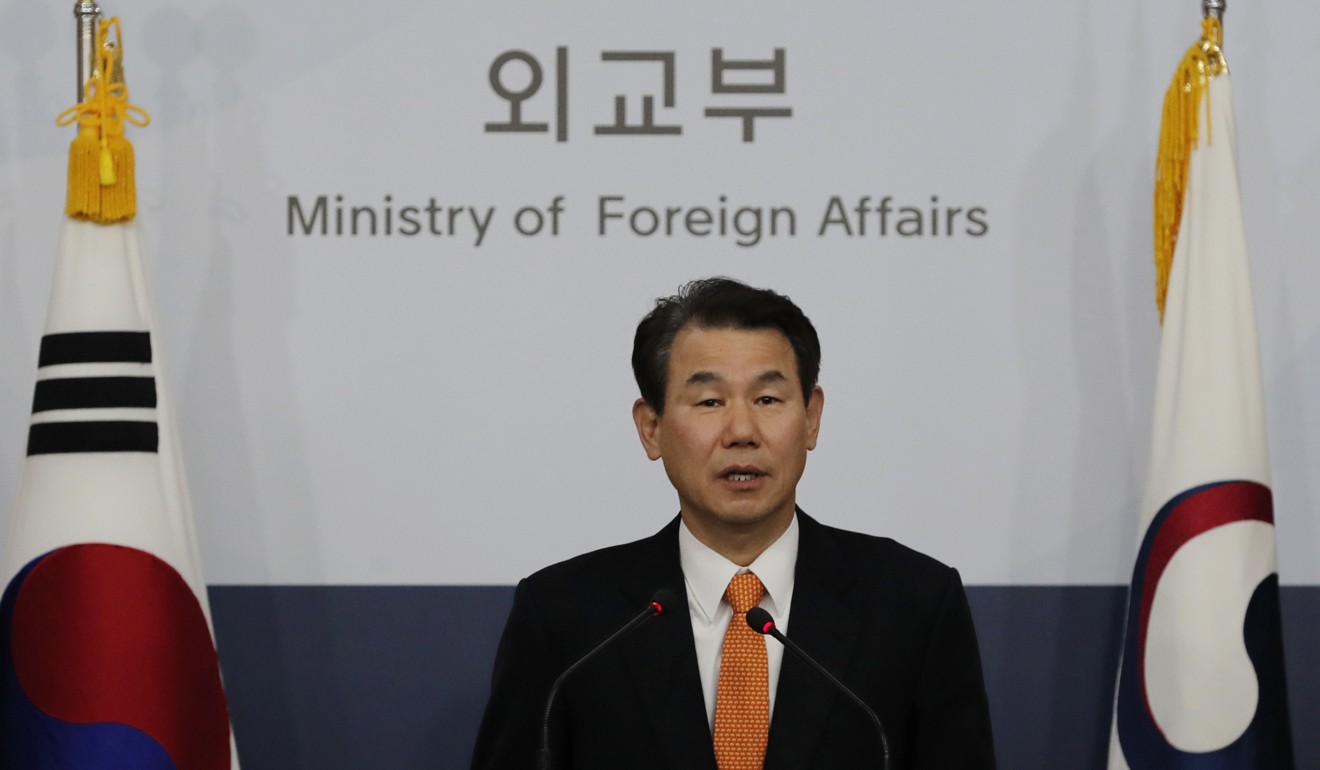
Donald Trump is threatening South Korea, but US military commitments to long-time allies are considered safe
- To curb in the growing influence of China and Russia, Washington needs its strategically located old friends, analysts note
- ‘The US foreign policy establishment no doubt understands the importance of its alliance systems in Europe and Asia,’ regardless of the president’s rhetoric

Washington’s military commitments in Asia and Europe are here to stay despite the Trump administration’s unorthodox foreign policy, which is causing friction with traditional US allies and led to a breakdown in talks with South Korea this week, American analysts say.
Observers point out that the regions sit at the core of American security interests in curbing the growing influence of strategic rivals China and Russia.
The observations were made as Asian and European officials voiced new doubts about the level of Washington’s commitments to its allies, after US President Donald Trump demanded that South Korea increase by 400 per cent its contributions to pay for keeping US military personnel on the peninsula.
The resentment was evident in Seoul on Tuesday, when the US delegation cut short talks over how to share the costs after Seoul balked at accepting Washington’s unexpected demands. “The proposals that were put forward by the Korean team were not responsive to our request for fair and equitable burden sharing,” lead US negotiator James DeHart said.

The current cost-sharing agreement expires at the end of the year.
The administration has insisted that South Korea and Japan quadruple their payments for US military deployments in their countries to roughly US$5 billion and US$8 billion, respectively. The US is expected to begin separate negotiations with Japan next year.
South Korean negotiator Jeong Eun-bo told reporters that the proposals of Washington and Seoul were “vastly different”. Outside the negotiating venue, about 300 South Koreans gathered to protest that Washington’s demands were “highway robbery”.
General Mark Milley, chairman of the US Joint Chiefs of Staff, said last week that average Americans were becoming sceptical of the US troop presence in South Korea and Japan.
“Why are they needed there? How much does it cost? These are very rich and wealthy countries, why can't they defend themselves?” Milley asked.
Amid the tensions, the Trump administration is diminishing the US military presence in the region, causing concern among allies.
On Sunday, Washington postponed its joint military air exercises with Seoul, which North Korea has long criticised as “provocative”. The South Korean floor leader for the opposition Liberty Korea party, Na Kyung-won, condemned the decision the next day, saying the allies were acceding to the North Korean regime’s demands.
“The two countries must deeply reflect on why the US-ROK alliance has ended up being such a transactional product,” Na said, suggesting the nature of the long-time alliance was showing signs of change.
Similar concerns are also rising in Europe, where Trump has long criticised Nato allies over defence spending. He has demanded that each Nato member country pay at least 2 per cent of its gross domestic product toward the military alliance, and the US is scheduled to negotiate the new cost-sharing with Germany and Nato next year.

French President Emmanuel Macron recently said Nato was experiencing “brain death”, lacking strategic coordination and leadership from the Trump administration. Macron said that under Trump the US was “turning its back on us”, and called on Europeans to do more in their own defence with the aim of “strategic autonomy” to fill the security vacuum.
At the same time US military commitments are being questioned in Europe, Russia is expanding the scope of its influence. Last month it sent two bombers to Africa, escorted by fighter jets from the South African Air Force, adding to European concerns.
Last month, Trump ordered the withdrawal of US troops from northern Syria, despite warnings that the move would only Russia’s influence in the region.
Kristine Lee, an associate fellow for the Asia-Pacific Security Programme at the Centre for a New American Security (CNAS), said the Trump administration had not been particularly successful in reassuring its allies and partners of American commitment in the region and their strategic importance to the US.
“Bilateralism and transactionalism, particularly in the manner in which it has approached discussions on burden sharing, has not put the United States on a steady footing for competing effectively with China and Russia in critical theatres,” Lee said.
“[But] despite the rhetoric that is coming from the highest levels of government, the US foreign policy establishment no doubt understands the importance of its alliance systems both in Europe and in Asia,” she added.
Lee said the “great power competition” framework laid out in the administration’s 2017 National Security Strategy and the 2018 National Defence Strategy (NDS) is predicated on the assumption that alliances are elemental to American power.
“The NDS explicitly states that one of the core pillars of its strategy is to ‘strengthen alliances and attract new partners’,” Lee said.

US lawmakers’ concerns about Beijing’s growing influence were reflected in a congressional report titled “Military and Security Developments Involving the People's Republic of China 2019”.
“Over the coming decades, [Chinese leaders] are focused on realising a powerful and prosperous China that is equipped with a ‘world-class’ military, securing China's status as a great power with the aim of emerging as the pre-eminent power in the Indo-Pacific region,” the report said.
Said Lee: “Even if rhetoric from President Trump does not reflect this reality, the United States is continuing to maintain close dialogue and coordination with allies to ensure that US military presence and investments reflect the political realities on the ground.”
Timothy Heath, a senior international defence researcher at the RAND Corporation, also predicted that the US would not significantly reduce its commitments in Europe and Asia.
“The inconsistencies in the statements by top US officials understandably have caused concern,” he said. “However, a closer look at US national security and defence documents make clear the US commitment to Europe and Asia. The US has important security and economic interests in those regions and cannot afford to withdraw its commitment.”
Heath also said the strategic needs run both ways, noting that there is no substitute for US power in Europe and Asia.
“Those countries – [especially] Europe and Japan – cannot replace the US military power needed to protect those supplies,” he said. “The US will continue to play an important role in that region to ensure stable global energy supplies and safe shipping, both of which are vital to the global and US economies.”
“Although building self-defence capacity and taking on more responsibility for security affairs is a reasonable response to evidence of US constraints on operating abroad, European countries, Japan and South Korea will continue to look to the United States to play a critical stabilising and deterrent role in their regions,” he added. “An Asia that features a weaker US presence, and nuclear-armed South and North Koreas, China and Japan, is not one that is likely to be stable and peaceful.”
Ryo Hinata-Yamaguchi, a visiting professor at Pusan National University in South Korea, agreed, saying that “the core of the US military commitment still remains strong”.
“So at this moment we're seeing more of a refinement of US forces in Europe and East Asia, rather than a simple reduction,” Hinata-Yamaguchi said.
“Whether it’s in Asia or Europe, any reductive changes to the alliance would open up opportunities for China and Russia to flex their muscles.”
In July, as the US’ regional allies South Korea and Japan underwent a bitter trade dispute with the absence of mediation from Washington, China and Russia conducted their first joint long-range air patrol by over the East China Sea and the Sea of Japan (also known as the East Sea), calling Washington’s military commitment in the region into question.
“[Washington] should instead seek to reinforce areas of overlap and convergence in the Venn diagram of [its] varies allies’ interests,” Lee said.
“Absent this, China and Russia are positioned to exploit fissures and pressure points in the US alliances systems.”